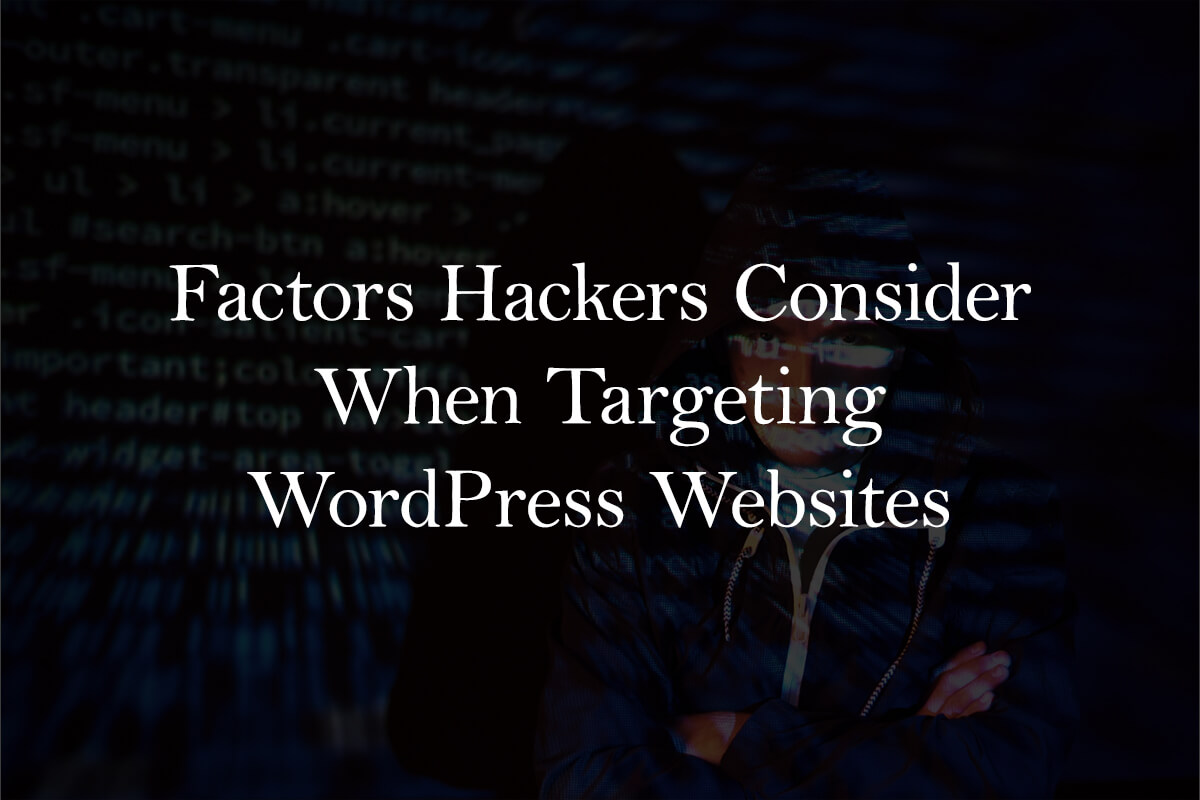
Factors Hackers Consider When Targeting WordPress Websites
As a cybersecurity company, we’ve seen firsthand the devastating effects of cyberattacks on WordPress sites. However, with the right knowledge and tools, these threats can be effectively mitigated. This article aims to empower WordPress site owners with an understanding of common vulnerabilities, illustrated with real-world examples.
Weak Passwords:
Imagine a home with a flimsy lock. Similarly, weak passwords are the fragile locks of the digital world. I recall an incident where a simple brute force attack cracked a weak admin password, leading to a complete site takeover. Use strong, unique passwords for all accounts associated with your site. The foundation of website security often starts with password strength. Hackers frequently employ brute force attacks to crack simple or predictable passwords. This vulnerability isn’t limited to just admin accounts but extends to FTP accounts, databases, and hosting accounts. The use of weak passwords simplifies unauthorized access, making it a primary focus for attackers.
Outdated WordPress Core, Themes, and Plugins:
Think of updates as digital vaccinations. Skipping them is like ignoring health check-ups. A client once faced a severe data breach because they hadn’t updated their WordPress theme, which had a known vulnerability. Regular updates are crucial for immunity against attacks. Regular updates to WordPress, its themes, and plugins are not just for feature enhancements but also for patching security vulnerabilities. When these components are outdated, they leave known security loopholes open, which hackers can exploit. It’s a common practice for attackers to scan websites for such vulnerabilities as an entry point for their malicious activities.
Nulled Themes and Plugins:
It’s tempting to use free pirated software, but it’s akin to inviting a thief into your home. A nulled plugin used by a business led to a hidden backdoor, which caused a massive data leak. Only use legitimate and verified themes and plugins. The allure of free access to premium themes and plugins often leads users to opt for nulled or pirated versions. However, these often come laced with malicious code, backdoors, or hidden links, leading to unauthorized access or control of the website. Hackers look for these compromised elements as they provide easy access to the website’s backend.
Poor Hosting Security:
Choosing a hosting provider is like choosing a neighbourhood. A shared hosting environment without robust security is like a neighbourhood prone to break-ins. We’ve witnessed sites on such hosting platforms getting hacked through another compromised site on the same server. The choice of a hosting provider plays a pivotal role in website security. Inadequate security measures, especially in shared hosting environments, can leave websites vulnerable. Hackers often target these weak hosting platforms as breaching one site can potentially give them access to others hosted on the same server.
Insecure Admin Area:
An unprotected admin area is like an unlocked control room. Simple measures like two-factor authentication can significantly enhance security. A website once had its entire content altered because the admin URL was easily guessable and had no login attempt limits. Hackers often target these areas to gain control over the website.
SQL Injection:
This attack is like someone manipulating your database with a master key. A client’s website was manipulated to display unauthorized content due to an SQL injection vulnerability in a plugin. Regularly scanning for such vulnerabilities is essential. This form of attack targets websites with poorly coded plugins and themes, allowing attackers to manipulate the site’s database. Through SQL injection, hackers can access sensitive data, corrupt the database, or even take over the website.
Cross-Site Scripting (XSS):
XSS can turn your site into a puppet controlled by a malicious actor. For instance, an online store’s customers were redirected to a fraudulent site due to an XSS vulnerability in a plugin, leading to reputational damage and loss of trust. As the most common vulnerability in WordPress plugins, XSS attacks involve injecting malicious scripts into websites. These scripts can then be used to steal information or hijack user accounts. Due to its prevalence, XSS is a frequent focus for attackers targeting WordPress sites.
File Upload Vulnerabilities:
Allowing unchecked file uploads is like letting strangers drop packages in your house. A community site once unknowingly hosted a malicious file, which spread malware to its users. Strict file upload controls are a necessity. Websites allowing file uploads without stringent security checks are particularly susceptible. Attackers can exploit this to upload harmful scripts or executable files, which can be used to compromise the website or its server.
Lack of HTTPS:
Not using HTTPS is akin to sending sensitive letters without an envelope. Personal data can be easily intercepted. Encrypting data with HTTPS is as fundamental as locking your doors. The absence of HTTPS (SSL/TLS) exposes data transfers, including login credentials and personal information, to potential interception and tampering. Hackers often exploit this vulnerability to gain access to sensitive data.
Inadequate Monitoring and Auditing:
Without monitoring, you wouldn’t know if someone is tampering with your site. Regular auditing can reveal suspicious activities early on, just like a security camera system in a building. Continuous monitoring and auditing of a website are crucial for early detection of any suspicious activities. A lack of these practices can delay the identification of a security breach, giving hackers more time to cause damage.
In conclusion, securing a WordPress site requires vigilance and a proactive approach. Emotional stories of breaches and attacks are all too common, but they can be prevented. For those seeking expert assistance, Hyrrokkin’s Secure WordPress Development Services offer a comprehensive solution. Our focus on creativity, transparency, and secure development makes us an ideal partner to transform your WordPress site into a fortress, safeguarding your digital presence against the evolving threats in the cyber world.






